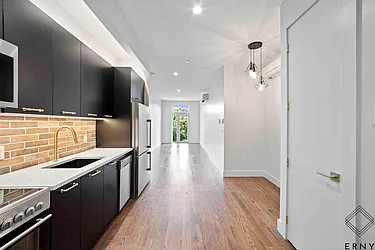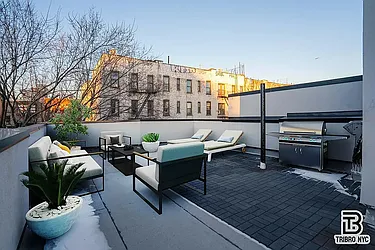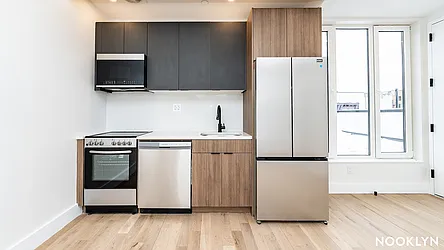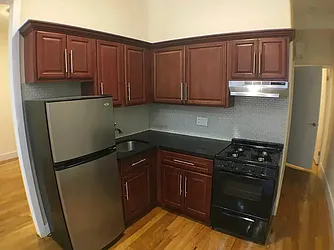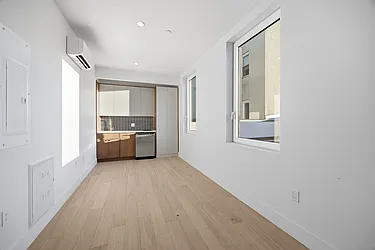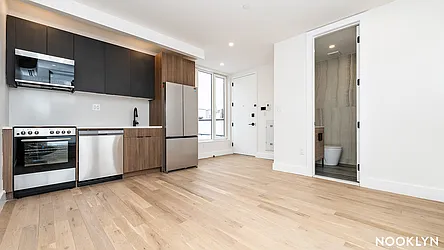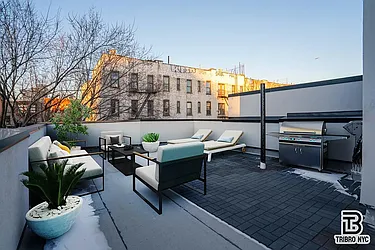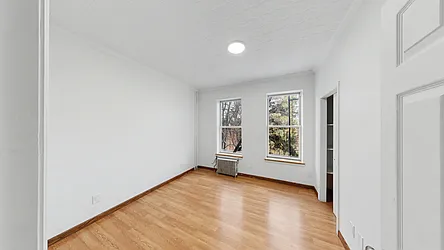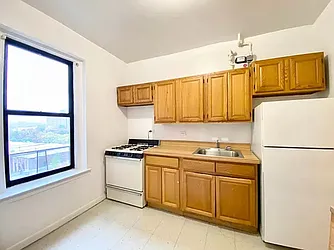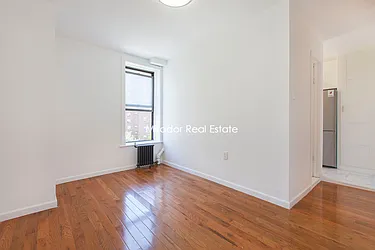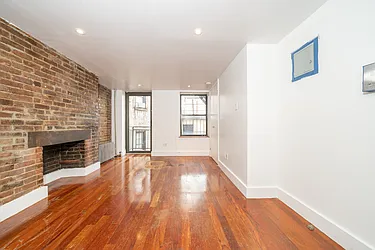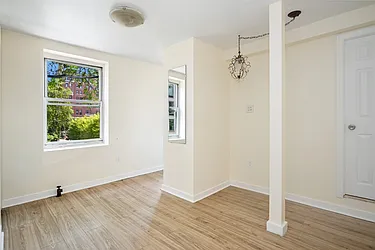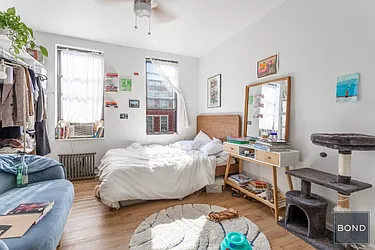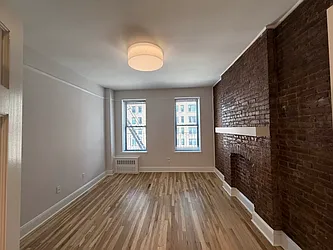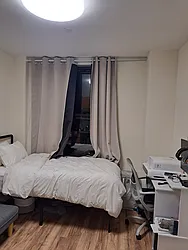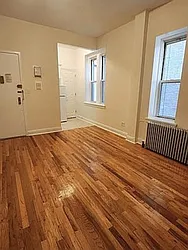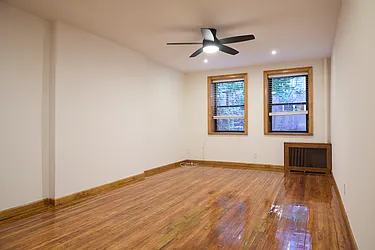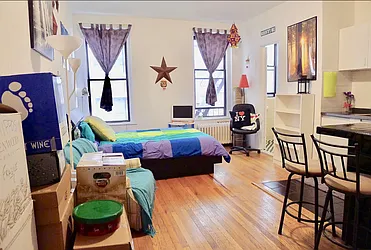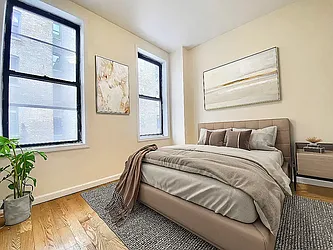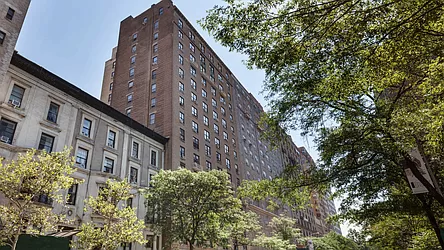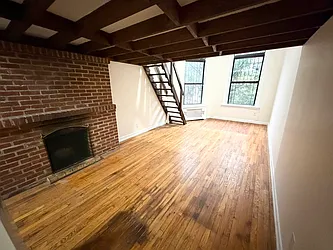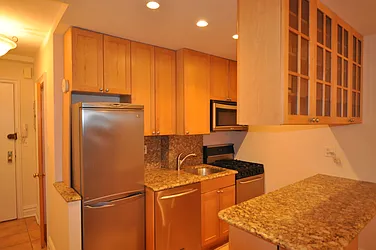
Price cuts and rent concessions are becoming more common in NYC. (From a listing featuring reduced rent at 1 West Street #3120)
These days many New Yorkers looking to renew or sign a new lease have a unique opportunity to strike a compromise with their landlords. It’s courtesy of soaring supply and low demand. Many people have left the city, creating a high vacancy rate, and according to a recent StreetEasy report, it’s impacting asking rents, with prices dropping for the first time since 2010. As a direct result, many buildings are offering rent concessions, which are incentives to woo tenants. But what does that mean exactly? And how is it different from “net-effective” rent? Here experts answer those questions (and more), so you can strike the best deal.
What Is a Rent Concession?
In simple terms, rent concessions are incentives that make rentals more appealing to lease. “They are typically adjustments to rent costs that benefit the renter financially,” broker Becki Danchik of Warburg Realty told StreetEasy.
Why Do Landlords Make Rent Concessions?
Landlords typically offer rent concessions when they have a lot of vacancies to occupy. Doing so helps the prospective tenant move quicker to seal a great deal.
Agent Christopher Totaro of Warburg Realty says, “Offering a concession is also a way for a landlord to maintain the advertised price history. The gross rent is advertised, which preserves the price history, while the concession creates interest in the property. It’s important to note that concessions are offered in down markets, so they are typically temporary measures.”
Williamsburg Rentals Under $3,000 Article continues below
Is Now a Good Time to Negotiate a Lease?
Absolutely, according to agents. Across the board, they see the amount of concessions increase. The city is “quiet” now, and a lot of landlords are eager to fill up their units. So, how should you go about asking for them?
“Do your research and see what concessions are being offered on similar (competing) properties and use what you find to back up your offer,’ said Totaro. “It’s similar to shopping for a car. XYZ dealership is offering a discount, can you match that deal? Here’s a tip, offer to sign a non-disclosure if you are negotiating with a major landlord.”
But broker Bill Kowalczuk of Warburg Realty noted that not every landlord will or needs to give a concession. He says, “location is always key. As an example, I had three apartments in the West Village, priced appropriately. People asked for free rent, but it wasn’t necessary. All three rented for the asking price, and all three tenants paid a brokers fee.”
East Village Rentals Under $3,000 Article continues below
Common Types of Rent Concessions
In today’s market, anything is possible. But the most common concessions are free months rent, owner paying the broker fee, complimentary amenities fee (think bike storage or gym access), and a reduced security deposit.
Free internet or utilities are additional types of rent concessions, according to Danchik. Occasionally, but not common, a landlord will allow a tenant to renovate without losing their security deposit. Appliances could be thrown in as well.
Should You Get Your Agreement in Writing?
It is always safe and helpful to make sure you have the concession outlined somewhere in writing. It can happen in the actual lease or the lease rider. A lease rider is essentially an addition to the lease, noting any unique changes (like rent concessions) to the typical lease terms.
As Kowalczuk said, “If it’s not in the contract, it doesn’t exist.”
Upper West Side Rentals Under $3,500 Article continues below
What Is the Difference Between Rent Concessions and Net-Effective Rent?
The concession is what you are getting for free, i.e., a free month’s rent.
“Net-effective is the average price per month you pay over the 12 months while having a free month’s rent,” said Kowalczuk. “A $4,000 apartment, with a free month, is net-effective at $3,667 per month. You don’t pay that number. It’s just the average over the 12 months. For instance, if a lease starts on Jan 1, you pay no rent that month. However, come February, you need to start paying $4,000 per month.”
It’s important to note that if the rent amount is advertised as net effective, the concession has already been factored and deducted.
What About Rent-Stabilized Apartments?
It gets a bit trickier with rent concessions when it comes to rent-stabilized apartments.
“My experience negotiating concessions for a stabilized unit has been that it did not impact the lease,” said Totaro. But Kowalczuk noted, “Lower priced apartments that are stabilized are, probably, not seeing concessions. A low priced stabilized lease is your concession.”
The solution? Consider getting some advice from an attorney. “There are pro bono options out there,” said Totaro.” The paperwork, terms, etcetera can be complicated. Always read the entire lease at least twice whether it is stabilized or not.”
—
Whether you’re looking to rent or to buy, find your next NYC apartment on StreetEasy.

